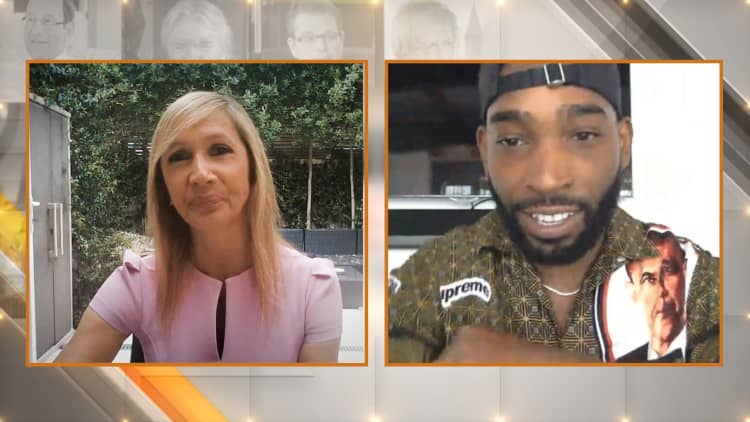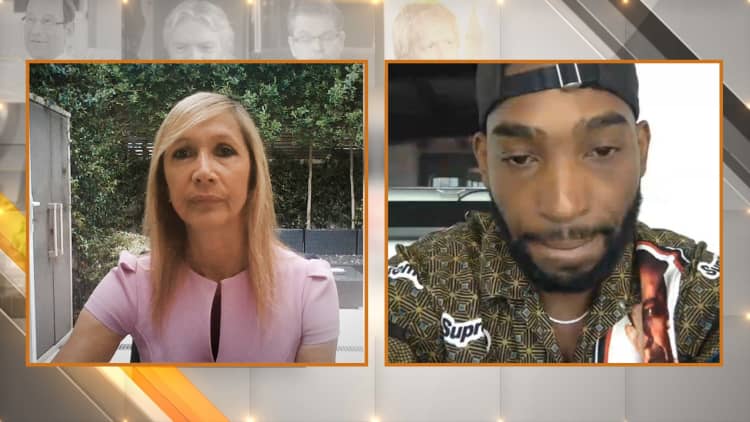
Multi-award winning British rapper Tinie Tempah told CNBC that mental health issues are prevalent in his community due to pressures including systemic racism and lack of opportunity.
The music star, who is one of the most successful rap artists in the U.K., and the first to reach a record platinum sales with his U.S. debut track "Written in the Stars" in 2011, also spoke about George Floyd, the African-American whose recent death while in the custody of the Minneapolis police sparked anti-racism protests in the U.S. and around the world.
Tempah is supporting "Britain Get Talking," a landmark mental health campaign which encourages people across the U.K. to stay in touch during the response to Covid-19.
Created by major U.K. broadcaster ITV, the campaign is supported by mental health charities Mind and YoungMinds, and says it has already helped to connect over 6 million people since March.
Tempah became involved after seeing first-hand his cousin's personal experience of mental illness and depression.
"He's somebody that's so close to me that when this opportunity arose, I just thought it made sense to use my platform and just create more awareness about this thing because it is real, even though you can't see it, it's very much there," he said.
The musician and fashion designer said he hopes his involvement can show people "they're not alone and that people in all different positions are experiencing similar things."
Research by Mind U.K. has found that alongside the risk factors of poverty, homelessness, housing insecurity and reduced opportunities, experiences of racism appear to be "a major influence on the mental health of black boys and young men."

Talking about the death of Floyd in Minneapolis, Tempah told CNBC: "The treatment of black people across the world as a whole is disgusting, you know, it's disgusting."
"Especially when you look at it in the sense of one, being innocent, and two, relying on these people to protect us and serve us which is their job, they're essentially civil servants. And so when you kind of look at it like that, that the person who's meant to be protecting you and keeping you safe could be the person that's potentially going to end your life, or now I have a child, end your child's life or end your brother's life, as a black person that is a very harsh reality to face," he added.
Tempah said he thought the recent protests and show of solidarity around the world had given people a chance to look "inwardly at themselves and at their environments."
Asked what he thought about criticism of President Donald Trump's response to U.S. demonstrations following the death, he said: "I was very disgruntled to see protesters being hit with rubber bullets."
"I wasn't really happy about the fact that he was using gas on some of these innocent people, this innocent youth. It doesn't really make sense to me," he said, adding he was disappointed with "the overall climate of America, where America is now."
Tempah believes that to move forward, world leaders, regardless of race, need to support the Black Lives Matter movement, and institutions such as schools, workforces, law enforcement, politics and governments need to look internally to identify where the real root of the issue lies.
"Racism is a disease and we need to look into our institutions and cut out the cancer. Cut out the cancer. Because at the end of the day, beyond all of these protests, we want effective, permanent change," he said.


